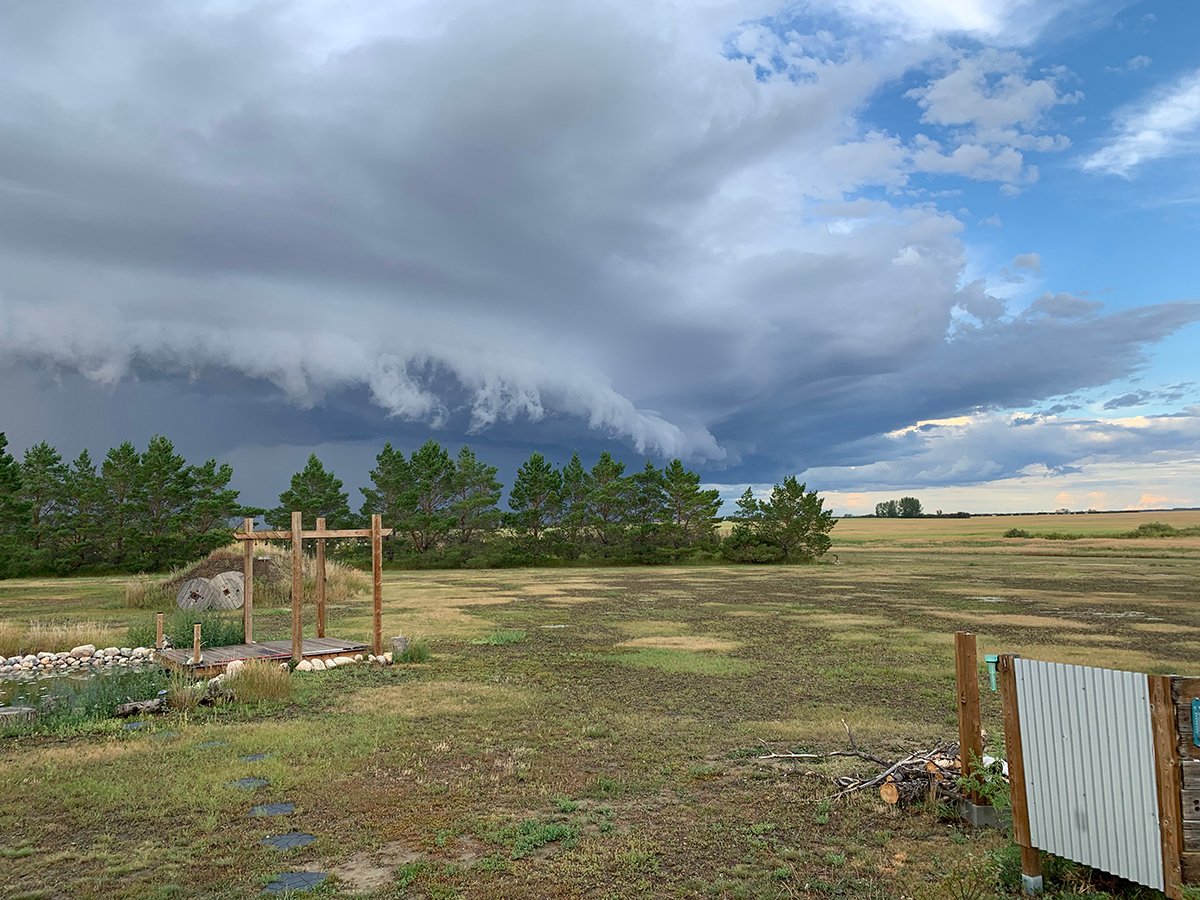Weyburn Inland Terminal shareholders have voted down a proposal to form a strategic alliance with another grain company.
Sixty-three percent, or 508,902, of the votes cast either in person or by proxy, were against the idea. Of the eligible shares, 88 percent were voted.
The vote took place at a special meeting of shareholders Dec. 10.
WIT president and chief executive officer Norm Flaten said he was disappointed with the result.
“I think a significant number, in fact most of our shareholders, seem to feel that we would lose control,” of the primarily farmer-owned terminal, he said. “There’s quite a strong emotional feel that by being responsible to ourselves as producers we’re looking after the interests of the shareholders and the farmers.
Read Also

Storm dynamics and extreme rainfall
Besides moisture, instability and orographic lift, the next biggest factor that contributes to heavy or extreme rainfall is storm dynamics.
“They have given us very firm direction so we will abide by that resolution.”
Flaten said the board began considering an alliance with another company after being approached by United Grain Growers. Five other companies subsequently proposed alliances before the WIT executive committee began exclusive negotiations with UGG, Flaten said.
“This was approved by the board but then the board changed its mind and decided that we would go no further in our discussions with United Grain.”
The question of an equity alliance with any company, where the company would buy between 25 and 40 percent of the shares, was then put forward at the special meeting.
United Grain Growers president Ted Allen refused to comment on either the WIT vote or the negotiations between the two companies.
Good reputation
Flaten said he believes other companies saw WIT as a good partner because of its location, its track record in attracting large volumes of grain and its reputation for quality. WIT recently won its second consecutive Canadian Wheat Board Quality First Award, which is awarded to the company that provides the best service to CWB American customers.
Flaten said WIT would have gained from an alliance by obtaining greater access to non-board markets. About 96 percent of the terminal’s volume is board grain.
“Some of us feel that we could do with a much broader base in terms of access to (farm) supplies and also managing our credit arrangements more effectively if we had a major partner.”
Flaten said the board will now concentrate on meeting future challenges.
“We have 1,200 permit books here and the grain is coming in very well, but in the meantime, other high-throughput facilities are being built in the trading area and we expect competition to stiffen considerably.”















